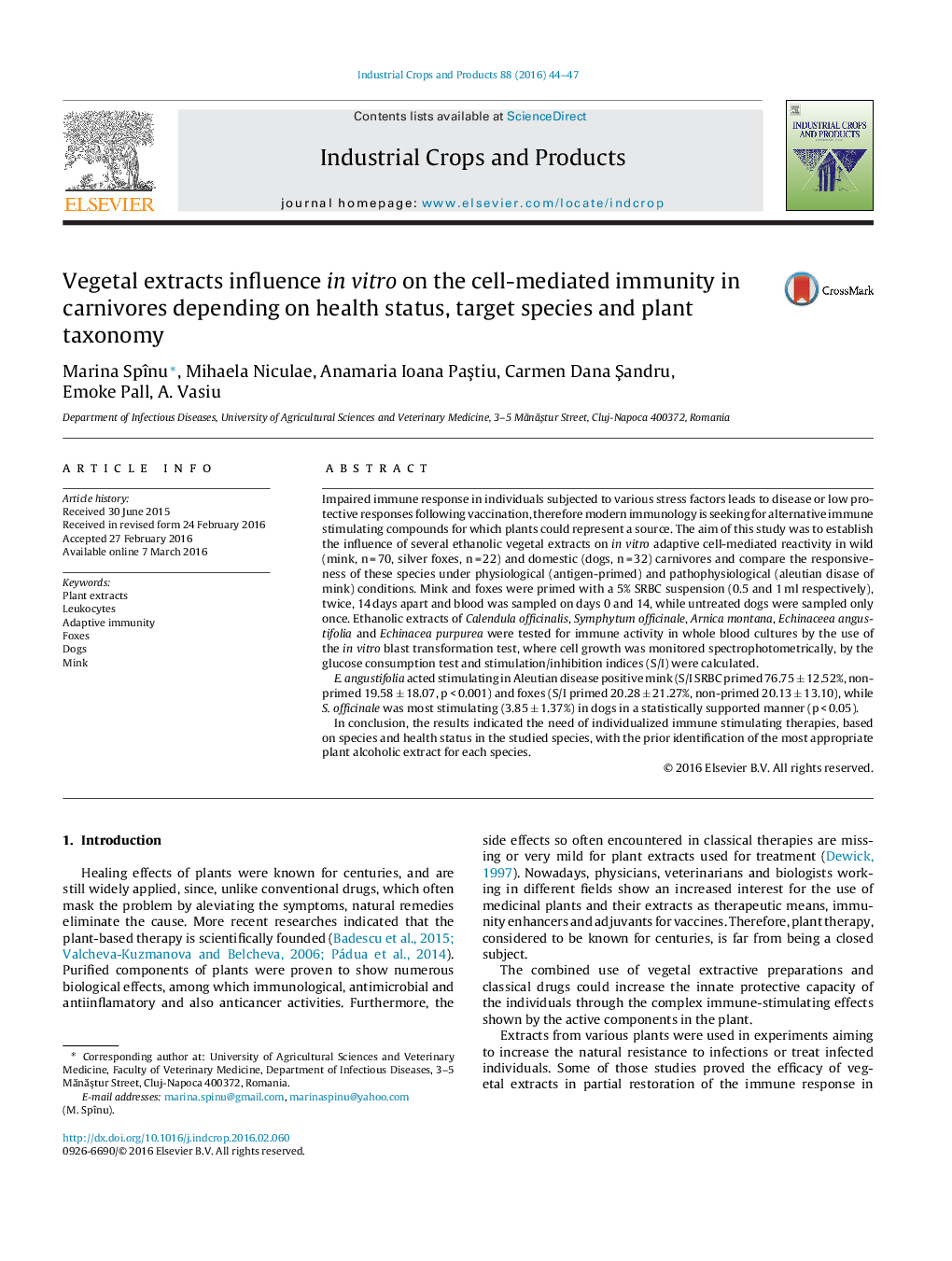| کد مقاله | کد نشریه | سال انتشار | مقاله انگلیسی | نسخه تمام متن |
|---|---|---|---|---|
| 4512187 | 1624822 | 2016 | 4 صفحه PDF | دانلود رایگان |
• Vegetal extracts were monitored for their effects on in vitro cell-mediated reactivity in carnivores by in vitro blast transformation test.
• There were significant differences in activity between extracts from different plant species, depending on animal species and immune status.
• Individualized immune stimulating therapies should be based on the studied species and their health with the most appropriate plant extract.
Impaired immune response in individuals subjected to various stress factors leads to disease or low protective responses following vaccination, therefore modern immunology is seeking for alternative immune stimulating compounds for which plants could represent a source. The aim of this study was to establish the influence of several ethanolic vegetal extracts on in vitro adaptive cell-mediated reactivity in wild (mink, n = 70, silver foxes, n = 22) and domestic (dogs, n = 32) carnivores and compare the responsiveness of these species under physiological (antigen-primed) and pathophysiological (aleutian disase of mink) conditions. Mink and foxes were primed with a 5% SRBC suspension (0.5 and 1 ml respectively), twice, 14 days apart and blood was sampled on days 0 and 14, while untreated dogs were sampled only once. Ethanolic extracts of Calendula officinalis, Symphytum officinale, Arnica montana, Echinaceea angustifolia and Echinacea purpurea were tested for immune activity in whole blood cultures by the use of the in vitro blast transformation test, where cell growth was monitored spectrophotometrically, by the glucose consumption test and stimulation/inhibition indices (S/I) were calculated.E. angustifolia acted stimulating in Aleutian disease positive mink (S/I SRBC primed 76.75 ± 12.52%, non-primed 19.58 ± 18.07, p < 0.001) and foxes (S/I primed 20.28 ± 21.27%, non-primed 20.13 ± 13.10), while S. officinale was most stimulating (3.85 ± 1.37%) in dogs in a statistically supported manner (p < 0.05).In conclusion, the results indicated the need of individualized immune stimulating therapies, based on species and health status in the studied species, with the prior identification of the most appropriate plant alcoholic extract for each species.
Figure optionsDownload as PowerPoint slide
Journal: Industrial Crops and Products - Volume 88, 15 October 2016, Pages 44–47
